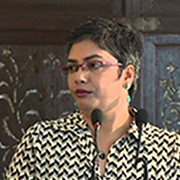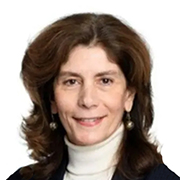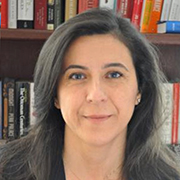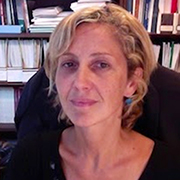On April 14, 2023, the Federal Reserve Bank of New York will host a hybrid symposium titled “The Global Economy after COVID.” The goal of the symposium, which is being organized by the Applied Macroeconomics and Econometrics Center, is to stimulate a thought-provoking debate among academics, practitioners, and policymakers on the shape of the global economy in the next decade. The event will comprise presentations, followed by Q&A, on the following topics: macroeconomic implications of global portfolio allocations; changing players in financial markets and international shock transmission; the future of world trade and implications for the U.S. economy; and economic implications of cross-border worker mobility.
Session One
Session Two
Session Three
Session Four
This conference is open to academics, practitioners, and policymakers virtually. There will be opportunities for Q&A during the event.
This event is open to the public and media virtually. All remarks are on the record and a recording will be made available afterward. For media inquiries, please contact Serene Ong.
Ozge Akinci
Mary Amiti
Marco Del Negro
Julian Di Giovanni
Linda Goldberg
April 14, 2023
10:00 AM-3:05 PM EDT
This will be a hybrid event with most panelists participating in-person and the general audience attending virtually.
| 10:00am-10:05am | Introduction: Marco Del Negro (New York Fed) |
| 10:05am-11:05am | Session I: Macroeconomic Implications of Global Portfolio Allocations Foreigners hold large stocks of U.S. private debt, public debt, and equities. Meanwhile, sovereign debt has risen dramatically around the world. What explains the global demand for U.S. Treasuries in normal times and high-stress periods? Does it matter that the U.S. dollar share of official foreign exchange reserves has declined? What are the macroeconomic consequences of having home bias within equity portfolios and imperfect risk sharing across borders? Chair: Ozge Akinci (New York Fed) Speakers: Markus Brunnermeier (Princeton), Rohan Kekre (Chicago Booth) Markus Brunnermeier's Presentation Rohan Kekre's Presentation |
| 11:10am-12:10pm | Session II: Changing Players in Financial Markets and International Shock Transmission The composition of players in financial markets has evolved, shifting away from global banks toward NBFIs. Does this change spillbacks to the U.S. through international financial markets and U.S. monetary policy effectiveness? What are the main channels through which specific types of institutions respond to U.S. monetary policy? What differs when there is greater uncertainty about the path of policy? What constraints and vulnerabilities shape cross-border reactions to changes in risk sentiment? What are the implications for the international transmission of shocks of higher stocks of sovereign debt across countries than before the COVID-19 pandemic? Chair: Linda Goldberg (New York Fed) Speakers: Anusha Chari (University of North Carolina), Matteo Maggiori (Stanford Graduate School of Business) Anusha Chari's Presentation Matteo Maggiori's Presentation |
| 12:10pm-1:00pm | Lunch |
| 1:00pm-2:00pm | Session III: The Future of World Trade and Implications for the U.S. Economy The COVID-19 pandemic and other geopolitical shocks have raised concerns about the resilience of the world trade system and questions on the viability of the current regime. Has there been, or will there be, a “de-globalization”? Will there still be reshoring of foreign production back to the U.S.? How might the shocks impact the reshuffling of foreign sourcing of final and intermediate goods? How might these changes in the global production structure impact key U.S. macroeconomic variables such as inflation, productivity, and labor markets? Chair: Mary Amiti (New York Fed) Speakers: Penny Goldberg (Yale), Şebnem Kalemli-Özcan (University of Maryland) Penny Goldberg's Presentation Şebnem Kalemli-Özcan's Presentation |
| 2:05pm-3:05pm | Session IV: Economic Implications of Cross-Border Worker Mobility This session considers the impact of foreign-born workers on a range of domestic economic phenomena. How might constraints on cross-border workers impact domestic firms’ ability to operate? How important a role do foreign-born workers play in driving labor market dynamics and wages? Have we seen a shift in the skill composition of foreign vs. domestic workers? How might this impact inequality? What implications are there for potential changes in the number of foreign-born workers/students on knowledge growth in the domestic economy? Chair: Julian di Giovanni (New York Fed) Speakers: George Borjas (Harvard Kennedy School), Anna Maria Mayda (Georgetown) George Borjas' Presentation Anna Maria Mayda's Presentation |



















